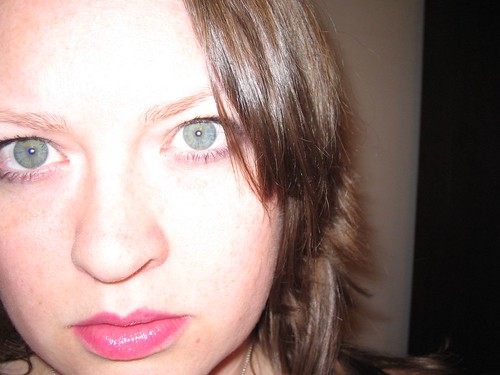Thursday, June 21, 2007
Staff Workshop
Today's session was all about accessing resources and services from off-campus, which meant that I got to demonstrate all the fun technological tools we've been madly implementing. When I demonstrated the citation format feature in EBSCO's email form, the participants broke out in applause. How awesome is that? Undergrads are far too cool to get that enthusiastic about anything we show them. Other fan favorites seemed to be the federated search, link resolver, citation matcher, and the for-credit, online IL course we'll have next spring.
After the workshop, several of the attendees commented that I was really enthusiastic. I truly love my job, especially the teaching part, but I know everybody else's enthusiasm and eagerness to learn really made the session what it was. I only wish we'd had twice as much time together.
Friday, June 08, 2007
Colorado Academic Library Summit
Thursday
Web 2.0 and the Digital Library (or, Learning from Flickr) - Steve Lawson (
Steve is active on many of the social networking sites I use, and I was interested to hear what he would say about 2.0 technologies. His presentation focused on lessons libraries can learn from flickr and implement on their own web presences. These include using human-readable and predictable URLs, offering RSS feeds, allowing user participation (tags, comments, notes/annotations), and opening up the API. Steve says what flickr has that we lack is the “single-minded devotion to improving the user experience” because our jobs pull us in so many directions. His handout and slides are available online: http://stevelawson.name/calc2007/.
Five posters were presented between the first and second programs. I was particularly interested in this one: WRite-on! Interactive Design for Teaching Citation Styles - Alan Aldrich, Carol Leibiger, Ph.D. and Andrea Peterson, undergraduate student in German and History, (University of South Dakota). This group developed an online tutorial patterned after refrigerator magnet poetry. Students get a pile of “magnets,” each of which is a piece of a citation, and rearrange them into correct MLA or APA style citations. Future plans include adding more styles and making the tutorial work on Macs and handhelds.
That's Fun! Teach Me More - Randy Christensen (
This session was more free-form than the others I attended. Randy jumped right into an audience-participation game. He asked us each how we use games in instruction, or how we think games could be useful. I heard a few really good, easy suggestions from other librarians. Most of the session focused on in-person games, but a few people mentioned adaptable games software for use in distance classes or as tutorials.
Overload: Strategies for Managing and Integrating Web 2.0 Technologies in Academic Libraries - Nina McHale (Auraria)
I think this session was meant more for people new to 2.0 technologies than for people already using them. The advice presented was good (use technologies to solve existing problems, not just because they’re cool), even if it wasn’t new to me. Nina offered lots of good examples of problems and their tech solutions, making the session really practical.
The Faculty - Library Connection - Erin McCaffrey, Tina Parscal, Tom Riedel (
I vote for this as the best presentation of the conference. Librarians and an instructional designer created an WebCT course for faculty teaching in their School for Professional Studies, most of whom are at a distance. Librarians facilitate the two-week course. For the final course project, faculty participants integrate an effective library learning activity into one of their courses. This is the way to make an information literacy instruction program relevant to course objectives and scalable to a large student body while introducing library services and resources to faculty at the same time.
Tuesday, March 06, 2007
Librarian bloggers: get linked

I've been negligent about promoting Library Links, a new-ish library blog network started by Jessica, the Cool Librarian. If you're inclined, join up and add the cute little button above to your page.





